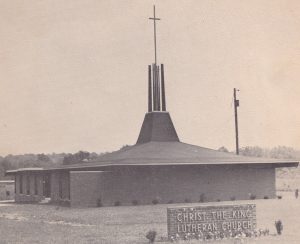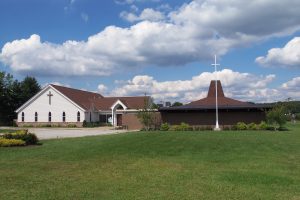For the vast majority of the three communities’ two hundred years of existence, there was a lack of local theater in the area. That all changed in December 1996, when the Twinsburg Youth Theatre debuted with a production of Babes in Toyland. First conceived in 1994 by Meredith Shreve, the youth theater started its transformation into a multigenerational community theater in 2001 after many adults approached Shreve with their desire to perform onstage. Before the 2001 production of Annie, adults only worked behind the scenes, building sets, dropping backgrounds, and so forth.
Shreve, originally from Cleveland, moved to Twinsburg in 1993; soon after her arrival she started serving on the Parks and Recreation Commission, in part due to her realization that there was no community theater. In particular, she recognized the importance of a theater program for children. According to Shreve, “Theater is a very great way for kids to have some activity and earn self-confidence and grow within themselves and express themselves.”
Thousands of adults and children have been involved in the community theater over the first twenty years of its existence. Almost all of them have participated solely for their love of the arts and sense of community, as there has never been any financial compensation. It is a nonprofit endeavor that pays for all the necessities in putting on a top-flight musical production via ticket sales, concessions, program sales, and fees paid by performers. All of these proceeds go toward funding expenditures such as royalties, rigging systems, choreographers, costumes, and other related requirements.
The productions have often been mounted on a grand scale, with as many as 120 people working on a single musical. World-renowned Hall Associates Flying FX supplied their exceptional effects for the flying sequences in Peter Pan.
One of the drawbacks to the community theater is that it is financed in part by a pay-to-perform platform, as all performers must pay a fee of fifty dollars to act in a production. This reduces the opportunity of underprivileged youths to participate in the community arts program. For those who have had the good fortune to participate in the community theater, it has brought great joy, a sense of achievement, and lifelong rewarding relationships with their fellow performers.
If there is any doubt as to the community theater’s positive effect on Twinsburg, it should be quelled by Mayor Katherine Procop’s statement that she couldn’t think of anyone who has brought more joy to the community than Meredith Shreve, through her devotion to the theater.
Twinsburg Community Theatre commemorated its twentieth anniversary in 2016 with a musical revue, a first for the theater. The production celebrates twenty years of Broadway, including fan favorites Wicked, The Little Mermaid, and Phantom of the Opera.

